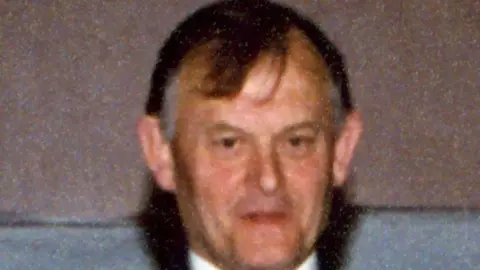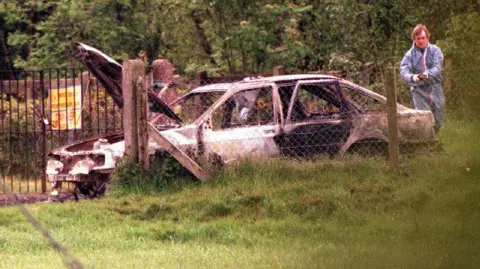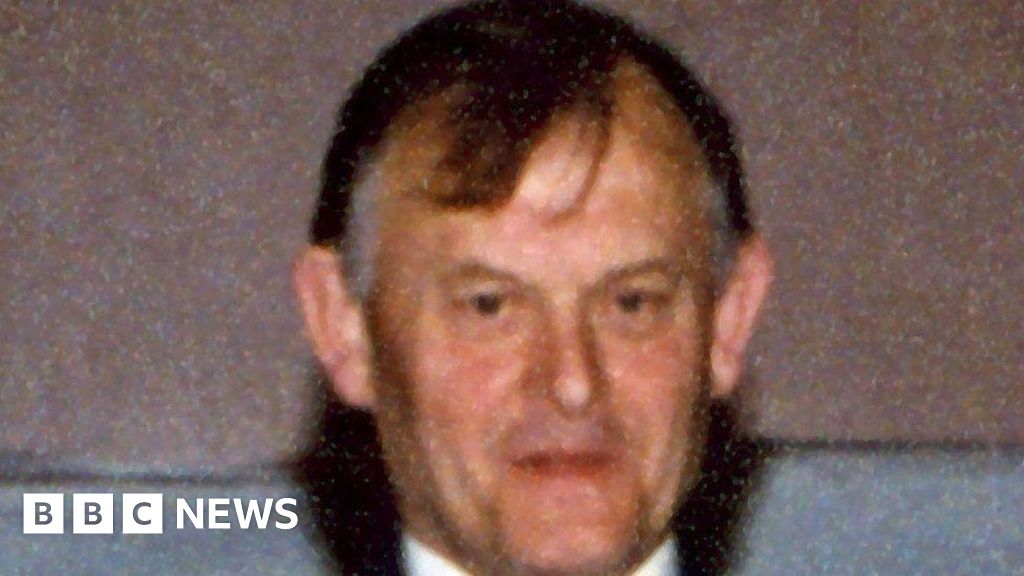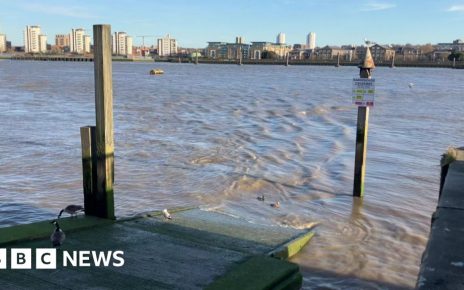 Pacemaker
PacemakerFirst Minister Michelle O’Neill has written to the prime minister calling the UK government to grant a public inquiry into the killing of GAA official Sean Brown in 1997.
In a statement, O’Neill said she has made a “direct plea to the British government”.
Mr Brown was abducted from outside a GAA club in Bellaghy, County Londonderry, and driven to Randalstown, in County Antrim, where he was shot six times in the head. Intelligence material has linked state agents to the 61-year-old’s death.
On Thursday the Court of Appeal ruled that the UK government’s refusal to hold a public inquiry into the killing of Mr Brown, who was abducted and shot dead by loyalists, is unlawful.
 PA Media
PA MediaThe court had also given Northern Ireland Secretary Hilary Benn four weeks to reconsider a decision not to hold an inquiry into Sean Brown’s murder by the Loyalist Volunteer Force.
O’Neill said Sir Keir Starmer and the government should accept the High Court’s ruling and grant a public inquiry “without any further delay”.
“Anything less would only further compound the grief and trauma of the Brown family, who — despite the passage of nearly 28 years — have not given up their courageous and dignified battle for justice.”
She added that, “there can be no more cynical moves or obstructionist tactics by the British government”. and a public inquiry is needed to “at last establish the full truth around Sean Brown’s murder”.
After the ruling on Thursday, the government said it will “carefully consider” the judgement.
The BBC have asked the government for comment.
The government had taken a legal challenge to overturn a decision by a court to order a public inquiry into Mr Brown’s murder.
Abducted and shot: What happened to Sean Brown?
 Pacemaker
PacemakerMr Brown was locking the gates of GAA club Bellaghy Wolfe Tones when he was kidnapped by the paramilitary grouping, the Loyalist Volunteer Force (LVF).
Early last year, a court heard that more than 25 people, including state agents, had been linked by intelligence material to Mr Brown’s murder.
Last March, a coroner said Mr Brown’s inquest could not continue due to material being withheld on the grounds of national security.
He decided that redactions of intelligence material meant he could not properly investigate the circumstances of the killing.
Instead, he wrote to the then Northern Ireland Secretary Chris Heaton-Harris, requesting a public inquiry into the case.
In December, the High Court ruled that current Northern Ireland Secretary Hilary Benn must set up a public inquiry into the murder.
What has the UK government said about Sean Brown?
Delivering the Court of Appeal judgement on Thursday, Dame Siobhan said there should be “no further delay in this case”.
A UK government spokesperson said it had “enormous sympathy for Mrs Brown and her family who have suffered so much”.
“The secretary of state has been clear that he wants to see a full investigation into the murder of Sean Brown.
“We acknowledge today’s judgement and will carefully consider it.
“This will not delay the government’s determination to repeal and replace the Legacy Act, and to implement mechanisms that are human rights compliant and can command confidence across communities.”
Speaking after Thursday’s Policing Board meeting, Police Service of Northern Ireland (PSNI) Chief Constable Jon Boutcher said they will cooperate with any inquiry.
“I made that position clear from when I first arrived in the PSNI as chief constable when I was addressing some issues around the inquest that I unfortunately had to stop,” he said.
“Anything we can do to support that family to make sure that they get the answers that they deserve we will do.”
The Troubles and its legacy
The issue of how to approach criminal cases related to the Troubles – the conflict in Northern Ireland that lasted almost 30 years and cost the lives of more than 3,500 people – has been a thorny issue for successive UK governments.
The previous Conservative government attempted to draw a line under the past by introducing the Legacy Act, which put a ban on inquests and civil actions related to incidents – such as killings – during the Troubles.
It also sought to offer a conditional amnesty for people suspected of Troubles-related crimes in exchange for co-operating with a new information recovery body, the ICRIR.
The controversial act was opposed by all victims’ groups and the main political parties in Northern Ireland.
Labour pledged to repeal the act if it came to power and, after winning last year’s election, it began the process last December.
However, Hilary Benn has indicated that the ICRIR will continue to operate and that the government will “make further changes to reform and strengthen” its “independence, powers and accountability”.





